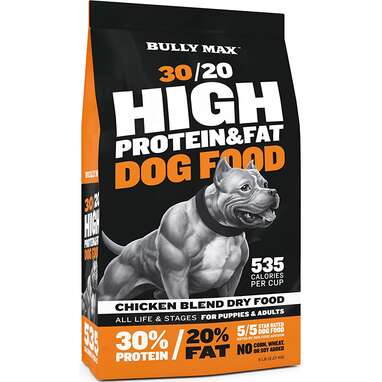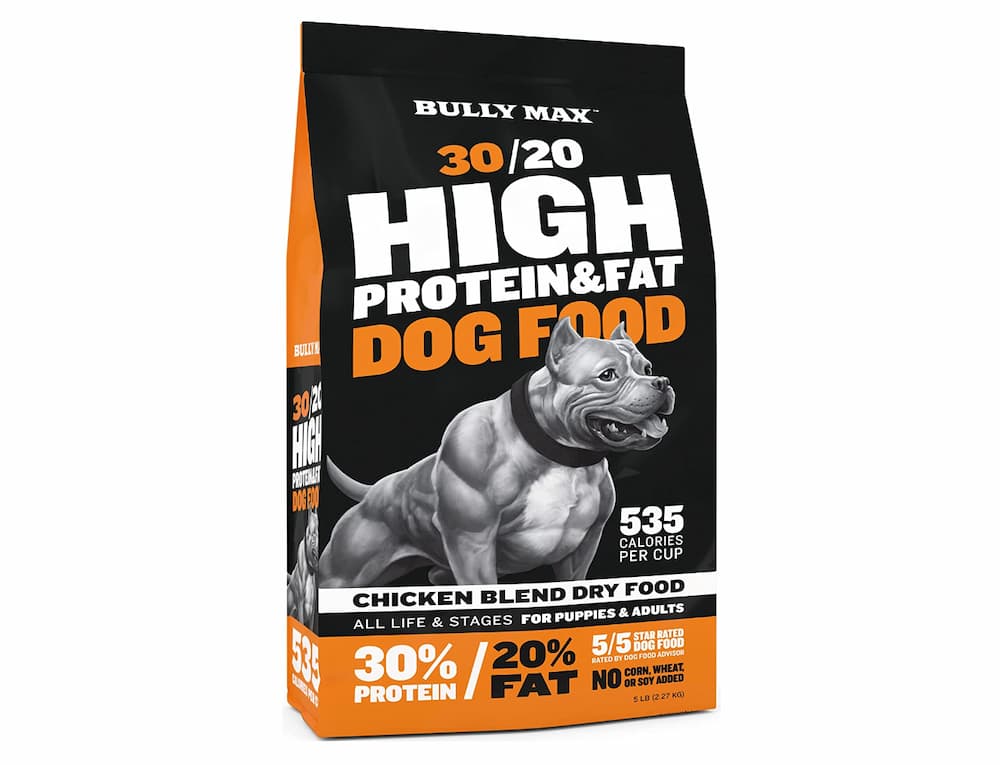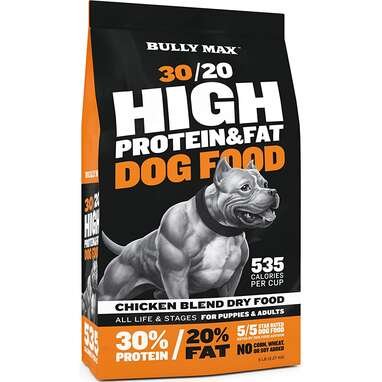Did you know that pitbull puppies have unique nutritional needs that require special attention? It’s true! These adorable puppies may have a reputation for their strength and sturdy build, but their dietary requirements play a crucial role in their growth and development. So, what should you feed your pitbull puppy to ensure their health and well-being?
When it comes to feeding pitbull puppies, it’s important to provide them with a balanced and nutritious diet. Start by choosing high-quality puppy food specifically formulated for large and active breeds. Look for options that contain a good balance of protein, fat, and carbohydrates to support their energy levels and muscle development. Additionally, make sure the food is packed with essential vitamins and minerals like calcium for strong bones and teeth. Consulting with a veterinarian can help you determine the appropriate portion sizes and feeding schedule for your pitbull puppy, ensuring they receive all the nourishment they need to thrive.
Overall, feeding pitbull puppies requires careful consideration of their unique dietary needs. Providing them with high-quality puppy food that is rich in protein, healthy fats, and essential nutrients is essential for their growth and development. Remember to consult with your veterinarian to tailor their feeding plan according to their specific requirements. By prioritizing their nutrition, you can lay the foundation for a healthy and happy life for your pitbull puppy.
Looking to ensure your pitbull puppies get a balanced diet? Follow this strong step-by-step guide:
- Choose a high-quality puppy food rich in protein and fat.
- Feed your puppies small, frequent meals throughout the day.
- Include fresh fruits and vegetables for added nutrients.
- Avoid certain foods like chocolate, onions, and grapes.
- Consult with your veterinarian for personalized advice and recommendations.

What to Feed Pitbull Puppies? A Guide to Their Nutritional Needs
Welcome to our comprehensive guide on what to feed pitbull puppies. Finding the right diet for your furry friend is essential for their overall health and well-being. In this article, we will explore the specific nutritional needs of pitbull puppies and provide tips and recommendations to ensure they receive a balanced and nourishing diet. Whether you are a new pitbull puppy owner or an experienced dog parent, this guide will help you navigate the world of puppy nutrition.
Understanding the Nutritional Needs of Pitbull Puppies
Feeding pitbull puppies requires an understanding of their unique nutritional needs. As energetic and muscular breeds, pitbull puppies require a diet rich in protein to support their growth and development. Protein is vital for building strong muscles and tissues. Look for high-quality dog food specifically formulated for puppies, as it will contain the right balance of nutrients. The Association of American Feed Control Officials (AAFCO) provides guidelines on the minimum nutritional requirements for puppies, and it is essential to choose a diet that meets these standards.
In addition to protein, pitbull puppies require adequate amounts of fat for energy. Fats are a concentrated source of calories and provide essential fatty acids that support brain development and a healthy coat. Look for dog food that contains healthy fats such as fish oil or chicken fat. Remember, moderation is key when it comes to fat intake. Too much fat can lead to weight gain and other health issues.
Carbohydrates also play a role in providing energy for pitbull puppies. Look for dog food that includes whole grains, fruits, and vegetables to ensure a balanced diet. These ingredients provide essential vitamins, minerals, and fiber, promoting a healthy digestive system and overall well-being. Avoid diets that are overly grain-heavy or contain excessive fillers, as they may not provide the necessary nutrition for your pitbull puppy.
The Best Food Choices for Pitbull Puppies
Choosing the best food for your pitbull puppy can be overwhelming with the vast array of options available. Here are some key factors to consider when selecting a diet:
- Quality Ingredients: Look for dog food that lists high-quality proteins, such as real meat, as the first ingredient. Avoid artificial additives, by-products, and fillers.
- Life Stage Formula: Opt for puppy-specific formulas that provide the nutrients necessary for growth and development. These formulations are designed to meet the specific needs of growing puppies.
- Complete and Balanced: Ensure the diet meets the AAFCO’s nutritional standards for puppies. Look for statements such as “complete and balanced” or “formulated to meet the nutritional levels established by the AAFCO.”
- Consider Your Pitbull’s Specific Needs: Some pitbull puppies may have allergies or sensitivities. If your puppy has specific dietary requirements, consult with your veterinarian to find the best food options.
Remember to gradually transition your puppy to a new food to prevent digestive upset. Start by mixing small amounts of the new food with the old food, gradually increasing the proportion of the new food over several days.
Essential Nutrients for Pitbull Puppies
Pitbull puppies require a variety of essential nutrients to support their growth and development. Here are some key nutrients to look for in their diet:
Protein:
Protein is crucial for the healthy growth of muscles, organs, and tissues. Look for a diet that contains high-quality animal-based proteins, such as chicken, turkey, or beef. The protein content should be around 25-30% of the diet.
Fats:
Fats provide concentrated energy and essential fatty acids for brain development and a shiny coat. Look for diets with around 15-20% fat content. Avoid diets high in unhealthy fats or excessive amounts of omega-6 fatty acids.
Calcium and Phosphorus:
These minerals are vital for bone development and strength. The right balance of calcium and phosphorus is crucial to prevent skeletal abnormalities. Look for diets that contain a calcium to phosphorus ratio of around 1:1 to 2:1.
Vitamins and Minerals:
Your pitbull puppy needs a variety of vitamins and minerals for overall health. Look for dog food that contains a blend of fruits and vegetables, providing essential vitamins like vitamin A, B vitamins, vitamin C, and minerals like iron and zinc.
Tips for Feeding Pitbull Puppies
Feeding pitbull puppies involves more than just choosing the right food. Here are some tips to ensure your puppy’s mealtime is enjoyable and nutritious:
- Feed According to the Recommended Serving Size: Follow the feeding guidelines provided by the dog food manufacturer. Adjust the serving size as your puppy grows to maintain a healthy weight.
- Establish a Feeding Schedule: Feed your pitbull puppy at regular intervals to promote healthy digestion and prevent overeating. Puppies generally require three meals a day up to six months of age, and then it can be reduced to two meals a day.
- Avoid Free-Feeding: Leaving food out all day can lead to overeating and weight gain. Serve measured portions at designated meal times and remove any uneaten food after 10-15 minutes.
- Provide Fresh Water: Always ensure your pitbull puppy has access to clean and fresh water. Hydration is essential for their overall health, especially during active play or hot weather.
- Avoid Feeding Human Foods: Some human foods can be toxic or unhealthy for dogs. Chocolate, grapes, onions, and certain spices should be avoided. Stick to a nutritious and balanced puppy food diet.
Choosing the Right Treats for Pitbull Puppies
Treats are a great way to reward your pitbull puppy for good behavior or to provide a small snack. When choosing treats, consider the following:
- Size and Texture: Opt for treats that are small and easy to chew for puppies. Avoid large or hard treats that may pose a choking hazard.
- Quality Ingredients: Look for treats made with wholesome ingredients, without artificial preservatives or dyes.
- Caloric Content: Treats should not exceed 10% of your puppy’s daily caloric intake. Treats should be given in moderation to maintain a healthy weight.
Puppy-Proofing Your Home: Ensuring a Safe Environment
Puppies are curious and often full of energy. To keep your pitbull puppy safe, it’s important to puppy-proof your home. Here are some tips to create a safe environment:
Secure Hazardous Areas:
Keep hazardous areas such as kitchens, bathrooms, and storerooms off-limits to your puppy. Use baby gates or other barriers to prevent access.
Remove Toxic Plants:
Some plants are toxic to dogs if ingested. Remove any poisonous plants from your home or ensure they are placed out of reach.
Store Chemicals Safely:
Cleaning supplies, medications, and other chemicals should be stored in secure cabinets or high shelves where your puppy cannot access them.
Keep Small Objects Out of Reach:
Puppies love to explore with their mouths and may accidentally swallow small objects. Keep toys, socks, and other small items out of reach to prevent choking hazards.
Summary
Feeding pitbull puppies requires understanding their unique nutritional needs and choosing high-quality dog food that meets those requirements. A balanced diet with the right amounts of protein, fats, carbohydrates, vitamins, and minerals is essential for their growth and development. Remember to feed according to the recommended serving size, establish a feeding schedule, and provide fresh water at all times. Additionally, puppy-proofing your home ensures a safe environment for your energetic pitbull puppy. By following these tips and guidelines, you can provide the best nutrition and care for your furry friend.
Key Takeaways: What to Feed Pitbull Puppies?
- Choose a high-quality puppy food with a good balance of protein, fat, and carbs to support their growth.
- Look for a formula specially designed for large breed puppies to ensure they get the right nutrients for healthy development.
- Avoid foods with artificial colors, flavors, and preservatives as they can cause allergies and digestive issues.
- Include a variety of meats, such as chicken, turkey, and beef, in their diet to provide essential proteins.
- Consult with a veterinarian for guidance on portion sizes and feeding schedules to prevent overfeeding and obesity.
Frequently Asked Questions
Welcome to our Frequently Asked Questions section on what to feed pitbull puppies. We understand that choosing the right food for your furry friend is important for their health and well-being. Here, we provide answers to some common queries to help you make an informed decision when it comes to feeding your pitbull puppies.
1. What are the key nutrients pitbull puppies need in their diet?
Pitbull puppies require a balanced diet that includes a mix of proteins, fats, carbohydrates, vitamins, and minerals. Proteins are essential for their growth and development, while fats provide energy. Carbohydrates provide a source of fiber, and vitamins and minerals support their overall health.
When selecting puppy food, look for one that contains high-quality animal proteins, such as chicken or beef, as the main ingredient. It should also include healthy fats, like fish oil or chicken fat, to support their growing bodies. Additionally, check for the presence of essential vitamins and minerals like calcium, phosphorus, and omega-3 fatty acids.
2. How often should I feed my pitbull puppies?
Pitbull puppies require more frequent feeding compared to adult dogs. Between the ages of 8 weeks and 3 months, they should be fed four meals a day. From 3 to 6 months, you can reduce the frequency to three meals a day. Once they reach 6 months, you can transition to two meals a day, which is suitable for most pitbull puppies.
It’s important to establish a consistent feeding schedule to help with their digestion and manage their hunger levels. Avoid leaving food out all day, as it can lead to overeating or picky eating habits. Stick to the recommended portion sizes for their age and size, and consult with your veterinarian for specific feeding guidelines.
3. Can I feed my pitbull puppies a raw diet?
Feeding your pitbull puppies a raw diet can be a personal choice, but it’s important to consider the potential risks and benefits. A raw diet typically includes uncooked meat, bones, and organs. It’s believed to mimic a dog’s ancestral diet and provide nutritional benefits.
However, raw diets come with potential health risks such as bacterial contamination and an imbalance of nutrients. It’s crucial to consult with your veterinarian before switching to a raw diet. They can guide you on proper food handling, supplement requirements, and ensure your puppies receive all the necessary nutrients for their growth.
4. Are there any foods I should avoid feeding my pitbull puppies?
Yes, there are certain foods that should be avoided when feeding pitbull puppies. Some common examples include chocolate, onions, garlic, grapes, raisins, caffeine, and alcohol. These foods can be toxic to dogs and may lead to serious health problems.
Additionally, avoid feeding your puppies foods high in sodium, artificial additives, and preservatives. These ingredients can be harmful to their health in the long run. Always read the labels and choose high-quality dog food that meets the specific nutritional requirements of pitbull puppies.
5. What signs should I look for to determine if my pitbull puppies are thriving on their diet?
Monitoring your pitbull puppies’ health is crucial to ensure they are thriving on their diet. Look for signs such as a glossy coat, bright eyes, and loads of energy. Their stools should be well-formed and not too loose or hard.
Regular visits to your veterinarian for check-ups and vaccinations are also important. They can assess the overall health of your puppies and provide guidance on their diet. If you notice any changes in their appetite, energy levels, or weight, it’s best to consult with your veterinarian to address any potential concerns.

Summary
Feeding pitbull puppies is important for their growth and health. Choose a high-quality puppy food that meets their nutritional needs. Make sure to feed them the right portions and avoid overfeeding. Offer a balanced diet with a mix of proteins, carbohydrates, and fats. Provide fresh water at all times. Consider consulting a veterinarian for specific dietary recommendations. Remember, a healthy diet will help your pitbull puppy thrive and stay happy.
